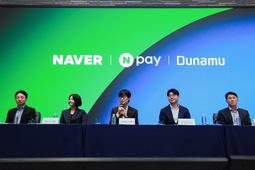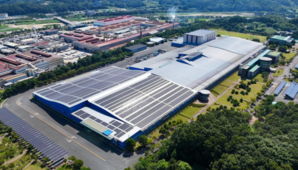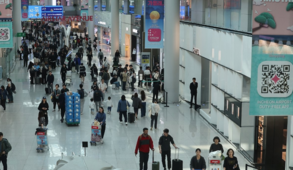
[News Space=Reporter seungwon lee] ABC Mart Korea (CEO Lee Ki-ho, hereinafter referred to as ABC Mart), the No. 1 domestic shoe distributor, exceeded KRW 600 billion in sales in 2023 and continued its growth in 2024, but its operating profit and net profit decreased slightly. Major risks include the structure of profit outflows such as royalties and dividends to the Japanese headquarters, the burden of selling and administrative expenses, sluggish performance at some stores, and uncertainty in overseas new businesses.
On the other hand, financial stability, including debt ratio and liquidity, is good. In the future, as a Japanese company, domestic consumer sentiment, changes in the offline distribution environment, and strengthening internal transaction transparency are expected to emerge as key management tasks.
Above all, the fact that dividends and royalties, which are close to net income, were combined to remit 50 billion won to the Japanese headquarters last year alone, and that financial transactions with special related parties (150 billion won) increased more than three-fold from the previous year, are structural problems that lead to a significant portion of profits generated in Korea flowing out overseas, which could increase social and policy risks in terms of public sentiment.
◆ Sales growth to continue in 2024, but operating profit and net profit to decrease slightly
According to the audit report registered in the Financial Supervisory Service's electronic disclosure system on the 14th, ABC Mart's sales in 2024 were tallied at 658.9 billion won, up 6.7% from the previous year (617.3 billion won). Operating profit was recorded at 59.2 billion won, down 1.7% from the previous year (60.2 billion won). Net income for the period was 50.2 billion won, down 2.9% from the previous year (51.7 billion won).
When sales are broken down, product sales (shoes and supplies purchased from external sources such as third-party brands and distributed) were 633.4 billion won, product sales (self-produced products, etc.) were 23.2 billion won, and rental sales were 1.5 billion won. Due to the nature of the 'shoe multi-shop', more than 96% of total sales are generated from 'product sales', self-produced products (product sales) are around 3.5%, and rental sales are only 0.2%.
Looking at the cost of sales, the cost of goods sold was 340 billion won, and the cost of products sold was 23.2 billion won.
The cost of sales ratio, which refers to the cost of goods sold (KRW 340 billion) compared to sales (KRW 633.4 billion), is at 54%, which is relatively high at 46% in gross profit margin and shows good operating profitability.
The cost of sales (KRW 23.2 billion) compared to product sales (KRW 23.2 billion) is 100%, which shows that the company's own products have almost no margin or the cost price and sales price are almost the same. This suggests that the company's own brand's market competitiveness is weak or that it is only a pilot lineup.
The operating profit ratio was calculated at 9.0%. As a company whose sales are mostly merchandise sales rather than product sales, the operating profit ratio of close to 10% shows that it is a considerably high level among similar shoe distribution companies.
◆ Dividend payout ratio of 80%, 40.4 billion won in dividends to Japanese headquarters… 51.9 billion won in royalties over the past 7 years also to Japanese headquarters
The retained earnings amounted to 473.1 billion won. Although the retained earnings themselves are sufficiently accumulated, the structure shows that the policy of focusing on dividends to major shareholders continues.
As of the 2024 financial statements, the number of issued shares is 50.52 million, and the capital is 25.26 billion won (par value 500 won).
The dividend is 800 won per share and the dividend rate (dividend yield) is 2.7%, which is higher than the domestic distribution and retail industry average, showing a relatively high dividend payout ratio.
The total dividend amount was estimated to be approximately KRW 40.4 billion (KRW 800 × 50.52 million shares).
Net income for 2024 is expected to be 50.2 billion won, and the dividend payout ratio (dividend to net income ratio) will be approximately 80%.
ABC Mart Korea is a foreign company with a 99.96% stake in its Japanese headquarters (ABC Mart Inc.), and has established a structure in which a significant portion of its profits are remitted to its headquarters in the form of dividends. In 2024, most of its net income will be paid out as dividends, maintaining a dividend policy that emphasizes returning profits to major shareholders rather than internal reserves.
A corporate finance analysis expert pointed out that, "ABC Mart Korea's dividends and dividend rate have a clear structural characteristic in which most of its profits are returned as dividends," adding, "This, coupled with the structure of fund outflow to the Japanese headquarters, could be controversial from the perspectives of domestic consumers and society in that the dividend policy is continuing to focus on returning profits to the headquarters rather than reinvesting domestically."
He continued, "If this trend continues and profits increase in Korea in the future, dividends to the Japanese headquarters are also likely to increase," emphasizing that "the trend of maximizing profits for the Japanese parent company's major shareholder (headquarters) is expected to remain unchanged."
The royalty payment in 2024 is 8.1 billion won, and over the past seven years, 6.2 billion won to 8.2 billion won has been steadily remitted annually to the Japanese headquarters as brand usage fees, totaling 51.9 billion won (8.1 billion won in 2024, 7.6 billion won in 2023, 7.3 billion won in 2022, 6.4 billion won in 2021, 6.2 billion won in 2020, 8.1 billion won in 2019, and 8.2 billion won in 2018).
In addition, ABC Mart paid a total of 8.6 billion won in royalties, including 600 million won under a licensing agreement with VANS in the US and 270 million won under a design use agreement with Walt Disney and others. In addition, it has an agreement (minimum guarantee) with VANS INC. and VF OUTDOOR INC. to purchase a certain amount of products annually, and if it fails to do so, it may lose its exclusive domestic retail rights.
This is a structural limitation in which a significant portion of operating profits in Korea are flowing overseas along with dividends, and is pointed out as a risk factor by domestic consumers and society. Last year, 40.4 billion won in dividends and over 8 billion won in royalties, totaling 50 billion won, were remitted to the Japanese headquarters.
◆ Special related party financial transactions increased by more than 3 times compared to the previous year… 1 lawsuit with a lawsuit amount of 2 billion won
Selling and administrative expenses increased by 1.8% to KRW 234.5 billion compared to the previous year (KRW 230.3 billion). Specifically, advertising and publicity expenses were KRW 8.8 billion, salary expenses were KRW 68.4 billion, retirement benefits were KRW 3.8 billion, welfare benefits were KRW 9.3 billion, and commissions were KRW 30.8 billion.
The salary (compensation) of key executives (directors and auditors) was 833 million won.
Financial transactions with special related parties amounted to 150 billion won, which is a more than three-fold increase from the previous year.
First, long-term financial products (special related party deposits) increased significantly to KRW 51.4 billion (KRW 16.5 billion the previous year). This amount includes funds deposited to special related parties such as the Japanese headquarters (ABC Mart Inc.). Other non-current assets such as lease deposits are also partially recorded as KRW 57.7 billion as deposits for buildings owned by special related parties.
In addition, the accounts payable and accounts payable from the purchase of goods from special related parties (such as the Japanese headquarters) amount to 20 billion won. In addition, the royalties (brand usage fees) paid to the Japanese headquarters amount to 8.1 billion won and a significant portion of the commissions paid are also classified as transactions with special related parties.
The reason for the sharp increase in financial transactions with special related parties compared to the previous year is that financial transactions with special related parties increased significantly due to the acquisition of overseas production corporations and new investments in countries such as Myanmar and Vietnam. In particular, investment in and financial support for new subsidiaries (such as TKH International, MYANMAR DYC, SUNNY SHOES, and ITC VINA) were concentrated.
The debt ratio was calculated at 10.5%, and the current ratio was 783%. There are no short-term borrowings, current liabilities were calculated at 53.2 billion won, and cash assets were calculated at 148.3 billion won. Intangible assets (software, lease rights) were 4.97 billion won.
In relation to legal proceedings, ABC Mart Korea is currently a defendant in one lawsuit, with a total amount in dispute amounting to 2 billion won.
There is no separate mention of the specific content of the lawsuit, the other party, or the cause of the lawsuit. However, if we look at past media and public information, ABC Mart Korea has various lawsuit experiences, including civil and criminal lawsuits with former CEO Ahn Young-hwan, store lease disputes, and transaction disputes with partners.
An insider in the distribution industry said, "ABC Mart Korea has been embroiled in a long civil and criminal lawsuit with former CEO Ahn Young-hwan, who stepped down from his position in 2011. The lawsuit had various issues such as the creation of slush funds, breach of trust related to lease contracts, and personal use of company property, to the point that they even conducted a background check on the former CEO through a detective agency, but in the end, they found him not guilty." The insider predicted, "The one remaining lawsuit is also likely to be an extension of the criminal or civil dispute with former CEO Ahn Young-hwan."
A corporate finance analysis expert pointed out that, "Fund transactions with special related parties (mainly the Japanese headquarters and affiliates) have increased significantly compared to the previous year. This could lead to governance issues such as transparency of internal transactions and controversy over profit outflow." He also said, "In addition, the steady payment of royalties and dividends to the Japanese headquarters has been pointed out as a structural problem in which a significant portion of profits generated in Korea are flowing overseas, which could increase social and policy risks in terms of public sentiment."
◆ What kind of place is Japanese company ABC Mart?… ABC Mart.INC owns 99.96% of shares
On the other hand, not many people know that ABC Mart is a Japanese company. Since it is a franchise offline shoe store that sells various domestic and international brands of shoes, people tend to spend without paying much attention.
ABC Mart Korea was established on August 29, 2002 for the purpose of engaging in the wholesale and retail business of shoes. It is headquartered at Pine Avenue, Euljiro 2-ga, Jung-gu, Seoul, and operates 327 stores in Korea, including the Myeongdong Central Store. The number of employees nationwide is approximately 1,700.
The largest shareholder of ABC Mart Korea is Japan-based ABC Mart.INC, which owns 99.96% of the shares. The remaining 0.04% is owned by Lee Ki-ho, CEO of ABC Mart Korea.
The consolidated global sales of ABC-MART, INC. headquarters in Japan for 2024 (March 1, 2023 - February 29, 2024) will amount to 344.1 billion yen. This is an 18.7% increase from the previous year (290.1 billion yen), and both domestic (215.7 billion yen) and overseas (107.3 billion yen) sales have grown.
Global sales include not only domestic sales in Japan, but also sales from overseas corporations in Korea, the United States, Taiwan, and Vietnam. Korea's sales volume is the second largest after Japan.
The headquarters is located on the 48th floor of Mori JP Tower, Jinnan Azabudai Hills, Shibuya-ku, Tokyo, Japan.
ABC Mart CEO Masahiro Miki founded International Trading Company in 1985 and started out as an import and sales company for shoes, clothing, etc. In 1987, the name of International Trading Company was anglicized and changed to International Trading Corporation (ITC).
By acquiring the rights to the British brand HAWKINS, with a 160-year tradition, the company was able to sell its products at half price, which led to a major expansion of its business, with the opening of the first ABC Mart in Ueno, Tokyo in February 1990.
The ABC in ABC Mart is an acronym for Action, Begin, and Challenger. It means ‘a challenger who begins to take action.’ There is another interpretation. ABC stands for Ability (recruitment based on ability), Bargain (extraordinary discounts), and Customer (marketing tailored to customer needs), which are considered to be the success factors of ABC Mart.
◆ What kind of place is ABC Mart Korea?… Pros and cons as a workplace
If we look at the actual evaluations of ABC Mart Korea by its employees and reviews posted on job sites and corporate information sites, the strengths and weaknesses of a Japanese company are clearly revealed.
The advantage is that the headquarters is connected to the Euljiro 3-ga subway station, so many people say that commuting is convenient. In addition to lunch time, there is a separate break time (called Damta (cigarette time)) in the afternoon. Also, as a fashion and shoe company, you can come into contact with various global brands and new products, so it is an interesting environment for employees who are interested in fashion.
There is also an opportunity to move to the Japanese headquarters after gaining experience at a Korean store, and the corporate culture that values field experience is reflected in the nature of offline franchise stores.
In particular, they hire based on ability, regardless of academic background or qualifications, and many executives come from stores. In fact, there are many cases where people have been promoted to general manager or executive after working at stores. As a form of welfare, shoes can be purchased at a discounted price.
The disadvantages are the low salary and compensation system. The most common complaint is that the salary is significantly lower than the average salary in the low distribution industry. Many point out that the salary at the previous company is deducted when changing jobs, and many say that the compensation system is poor.
The old-fashioned corporate culture and internal politics are also often cited as disadvantages. The evaluation of the hierarchical and conservative organizational culture and the severe internal politics is repeated. There is also a perception that political power is more important than ability for promotion.
The unfairness of promotions and compensation has also come under fire. There are complaints that employees who are actually better at politics than work are often promoted. There are also criticisms that compensation is mainly given to veterans who remain after a large number of employees leave the company.
There is also criticism that the level of work at the headquarters has been lowered and sharply reduced due to the transfer of some of the staff from the stores to the headquarters.
Due to the nature of the business, working at the store on weekends and holidays is mandatory. Headquarters employees are also required to work at the store once a week, including on public holidays, and many are complaining about the decline in work-life balance due to this. There are few welfare benefits other than shoe discounts at the company's stores, and there are complaints that even this limit has recently been reduced.
There were also criticisms that, as a Japanese company, they were forcing Japanese culture. Many employees complained about the inconveniences caused by the Japanese corporate culture, such as arriving at work 10 minutes early in the morning, group cleaning, and bylaws. There were also opinions that, in the case of store employees, the labor intensity was high, such as non-payment of overtime pay, work instructions after work, and repeated inventory checks, which did not suit the MZ generation.
Looking at the opinions posted by employees, there were opinions such as, “The salary is too low, and the system doesn’t recognize hard work,” “I quit because I’m afraid it will become toxic if only people who don’t work remain,” and “Politics over work, compensation centered on seniority, low salary, repetitive store work.”
























































